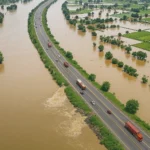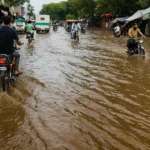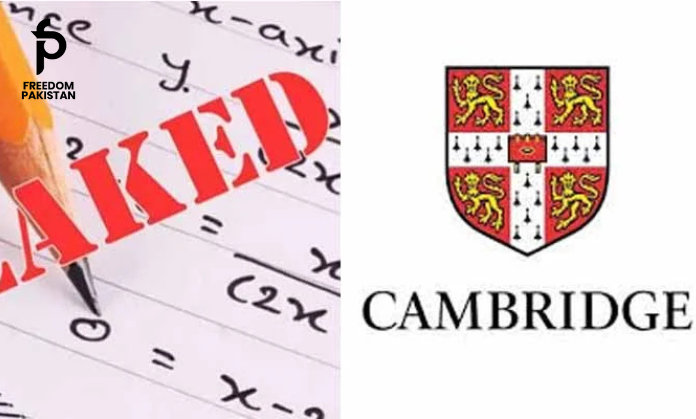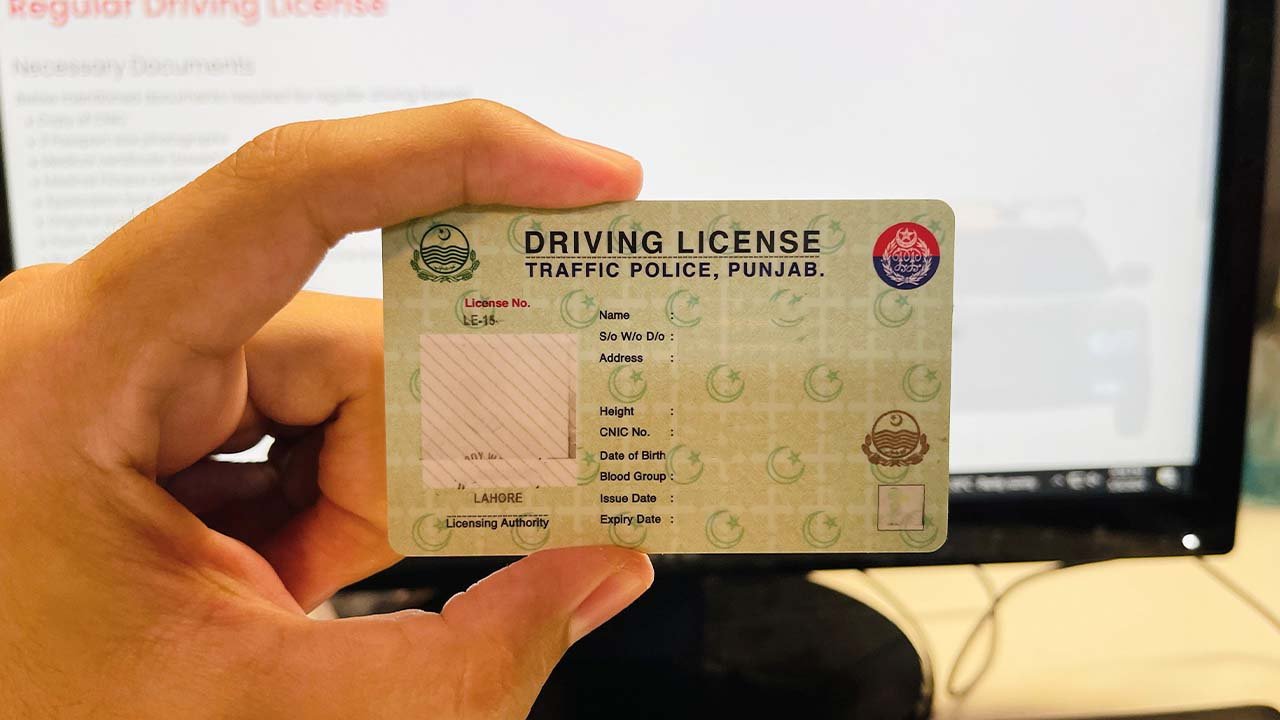In a major integrity breach, Cambridge Assessment International Education (CAIE) has officially confirmed leaks of A‑Level exam papers during the June 2025 examination series in Pakistan. The acknowledgment comes amid mounting evidence and intense pressure from the National Assembly Standing Committee on Education.
Background Context
Concerns first emerged in May 2025, when multiple A‑Level papers—including Maths P1, M1, and Computer Science P2—were reported leaking via WhatsApp and Reddit, with proceeds of around $150 per paper. One distressed student described their experience:
“Major papers have been leaked…Rich students are buying these leaked papers for 150 USD…We are taking these exams in a state of complete uncertainty.”
Such leaks not only gave an unfair advantage to those who could afford them, but also inflicted serious stress and potential future harm on honest candidates.
Evidence & Discovery
On May 30–31, the National Assembly Committee, chaired by Dr Azimuddin Zahid Lakhvi, examined video evidence alleging multiple leaked papers. Faisalabad MNA Muhammad Ali Sarfraz presented recordings of questions matching in‑exam papers . The IBCC’s Executive Director confirmed Cambridge had withheld critical information from Pakistani regulators .
Cambridge’s Official Statement
On June 4, 2025, Cambridge issued a statement urging students to believe in the fairness of the June exams. They stressed that while leaks are rare across their 2 million annual assessments in 160 countries, any identified compromise would prompt swift action—such as sanctions, regrading, or cancelling results.
Government & Regulatory Response
The National Assembly formed a four‑member subcommittee—including MNAs Sarfraz, Zeb Jaffer, Dr Aleem, and IBCC’s Dr Mallah—to investigate thoroughly after June 16, when exams concluded. They voiced low confidence in Cambridge’s oversight, especially after the shift from British Council–managed exams to those held in private schools . Among recommended measures were July retakes, adjusted grade thresholds, and financial support for affected students.
Impact on Students & Parents
The leak scandal has intensified student anxiety and financial strain. Parents collectively pay around Rs 200,000 per session—what one student called a “nightmare” scenario. The wealthiest had privileged access; meanwhile, ordinary students faced emotional turmoil:
“We are overwhelmed…not just by academic pressure, but by real mental health crises.”
Potential Outcomes & Stakes
Cambridge may cancel compromised papers, apply grade adjustments, or allow fee‑free retakes—echoing past responses like the 2024 AS Maths paper fetch. The NA subcommittee supports re‑exams in July, lowered pass thresholds, and perhaps broader oversight reforms .
Pakistan’s Dairy Sector Warns of Collapse Amid World’s Highest Milk Tax
You Can Also Read This
Comparisons to Past Incidents
This is not the first Cambridge leak. In July 2024, an AS Level Maths paper was cancelled and retakes scheduled after a widespread leak . Similarly, Reddit users have recounted past leaks across regions:
“9709 p12 was le@kedd… my friends got it 2 days before the exam”
These incidents reveal systemic vulnerabilities, especially when examination administration shifts hands.
Widening Fallout and Growing Public Distrust
The Cambridge paper leak has not only triggered institutional responses but also ignited a broader debate around the transparency, equity, and relevance of foreign examination systems in Pakistan. With students openly protesting online and parents organizing informal support groups, a growing portion of the public is questioning whether international boards like CAIE can provide a secure and fair examination process in Pakistan’s current education ecosystem.
Social media has become a major outlet for students’ frustrations, with hashtags like “#AlevelsScam” and “#JusticeForStudents” trending intermittently in May and June. Parents have voiced similar concerns, particularly around the psychological and financial toll caused by re-scheduling uncertainties, lack of communication from exam centers, and the rising cost of retakes or application-based grade reviews.
According to several parent-teacher groups, private schools administering Cambridge exams under less oversight have contributed to increased irregularities. Previously, the British Council handled exam invigilation in Pakistan—a system considered more transparent and accountable. But the current decentralized exam model, introduced after the COVID-19 pandemic, has raised serious concerns about the handling, storage, and transport of exam materials, particularly in high-pressure urban environments like Karachi, Lahore, and Islamabad.
Expert Opinions and Systemic Gaps
Education experts argue that the leak reflects deeper structural flaws rather than isolated incidents. Dr. Farah Zafar, a curriculum specialist and former IBCC advisor, commented:
“We keep importing foreign qualifications while failing to develop a reliable national system. These leaks are not about a few bad actors—they reveal a lack of institutional safeguards and domestic ownership of educational quality.”
Cambridge International itself has acknowledged that while it operates globally, each country must take local measures to ensure exam security. In Pakistan, where institutional integrity is frequently under pressure, outsourcing assessments to private hands without rigorous accountability has exposed vulnerabilities.
There is also growing momentum among local educators to revamp or replace foreign qualifications with internationally benchmarked local boards, such as the Aga Khan University Examination Board (AKU-EB) or Federal Board International Stream (FBISE-IS). These proposals suggest aligning national boards with international curricula (like the IGCSE framework) but retaining exam security and integrity through local control.
The Case for Reform and the Path Forward
The current crisis may serve as a turning point. Parliament’s involvement marks one of the first times Pakistan’s elected representatives have seriously scrutinized the functioning of an international education provider. Some legislators have hinted at restricting CAIE’s operation if it fails to implement strong anti-leak protocols or refuses to coordinate more transparently with local bodies like the IBCC.
Possible reforms include:
-
Reinstituting centralized exam invigilation under British Council or another neutral authority.
-
Mandatory electronic tracking of question papers’ movement.
-
Real-time reporting of paper distribution and suspected malpractice.
-
Lowering re-sit fees or providing free-of-cost retakes for affected students.
-
A longer-term plan to create a Pakistani alternative to A-Levels with global recognition.
As of June 20, students, teachers, and parents alike await the official outcome of Cambridge’s internal investigation. The final decision could include grade adjustments, exam nullifications, or policy shifts that redefine how international exams are held in Pakistan moving forward.
Ultimately, this moment could be used to overhaul an elite education system that has long escaped proper scrutiny—and in doing so, move toward a more just and inclusive academic future for Pakistan’s students.
Conclusion
Cambridge’s June 4 statement, the National Assembly’s probe, and growing student unrest signal that decisive action is imminent. The underlying issues—exam security, equitable grading, and stress mitigation—must be addressed urgently to protect Pakistani students’ futures and restore trust in international qualifications.












